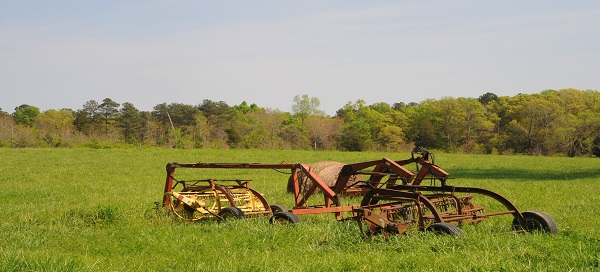When we picture the Piedmont region of North Carolina today, many of us envision forests…

North Carolina is taking a leadership role in the local food movement through its wide participation in the “Farm to School” food program. According to an article from Asheville’s Citizen-Times, 73 out of the 115 districts, which includes almost 1 million students, have participated in some form of farm-to-school program or activity. Of states from all across the country participating in this program, North Carolina is second only to California in the $34.4 million its citizens spent on local food in one year. This is especially impressive considering the total amount spent across the country was $355 million!
Local food makes up a significant portion of the districts’ budgets. For example, “Vance County reported the highest percentage of going local – spending 50 percent of their food budget locally, followed by the Mount Airy schools at 45 percent and Chapel Hill-Carrboro at 39 percent.”
Spending money on local food has a three-fold benefit for our local communities. First, local food supports local farmers. Money spent remains in the community, strengthening consumers and producers and North Carolina as a whole. Second, local foods, especially fruits and vegetables, are a critical part of making healthy choices and confronting childhood obesity: “While kids are sure to turn up their noses at some healthy foods, they may be more inclined to eat products that are possibly grown by a farmer whose son or daughter happens to be a classmate.” Third, many schools are growing their own food in edible gardens. Gardening gives students the opportunity to get their hands dirty and have first-hand experiences watching their food begin as seeds and become fully grown fruits or vegetables.
Local food has all these benefits plus one additional advantage: it tastes good! Exposing young people to local food can begin life-long healthy habits. Finding and buying local food is becoming easier and easier, inside school systems but also in daily life. Whole Foods labels the origin of their fruits and vegetables, and customers can choose to purchase produce grown near their hometowns. Farmers' markets are another easy way to have direct interaction with farmers. The Carrboro Farmers' Market, Durham Farmers' Market, Raleigh Downtown Farmers' Market, and Cary Downtown Farmers’ Market, just to name a few, have weekend and weekday hours to make buying local food and other products easy and convenient.
The Triangle Land Conservancy is committed to supporting local farms through protective conservation easements so that farms can remain farms. We also run a 270-acre Irvin Nature Preserve & Farm, which serves as an educational incubator for small farmers, beekeepers, and support non-profits addressing hunger, such as Transplanting Traditions. Check out our Friday blog series highlighting outdoor activities as well as restaurants using local food to craft their delicious meals. Have a local food favorite? Let us know on our Facebook page!
